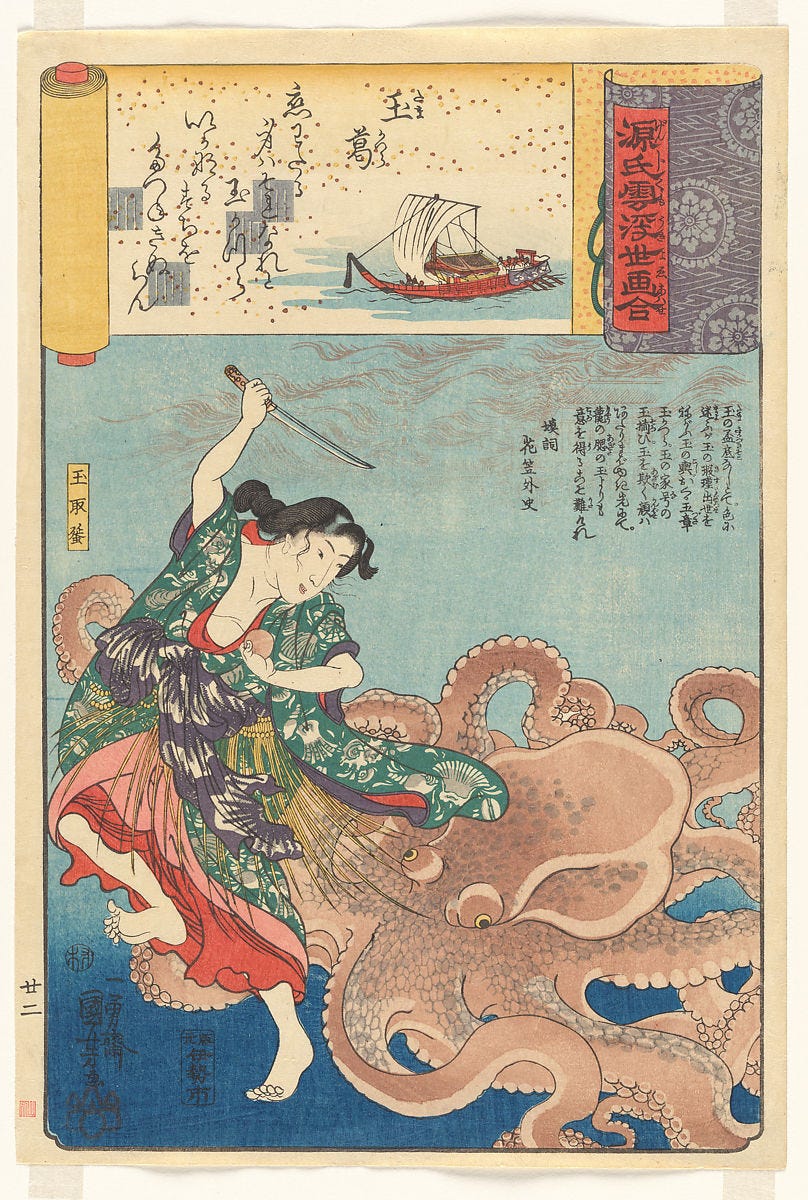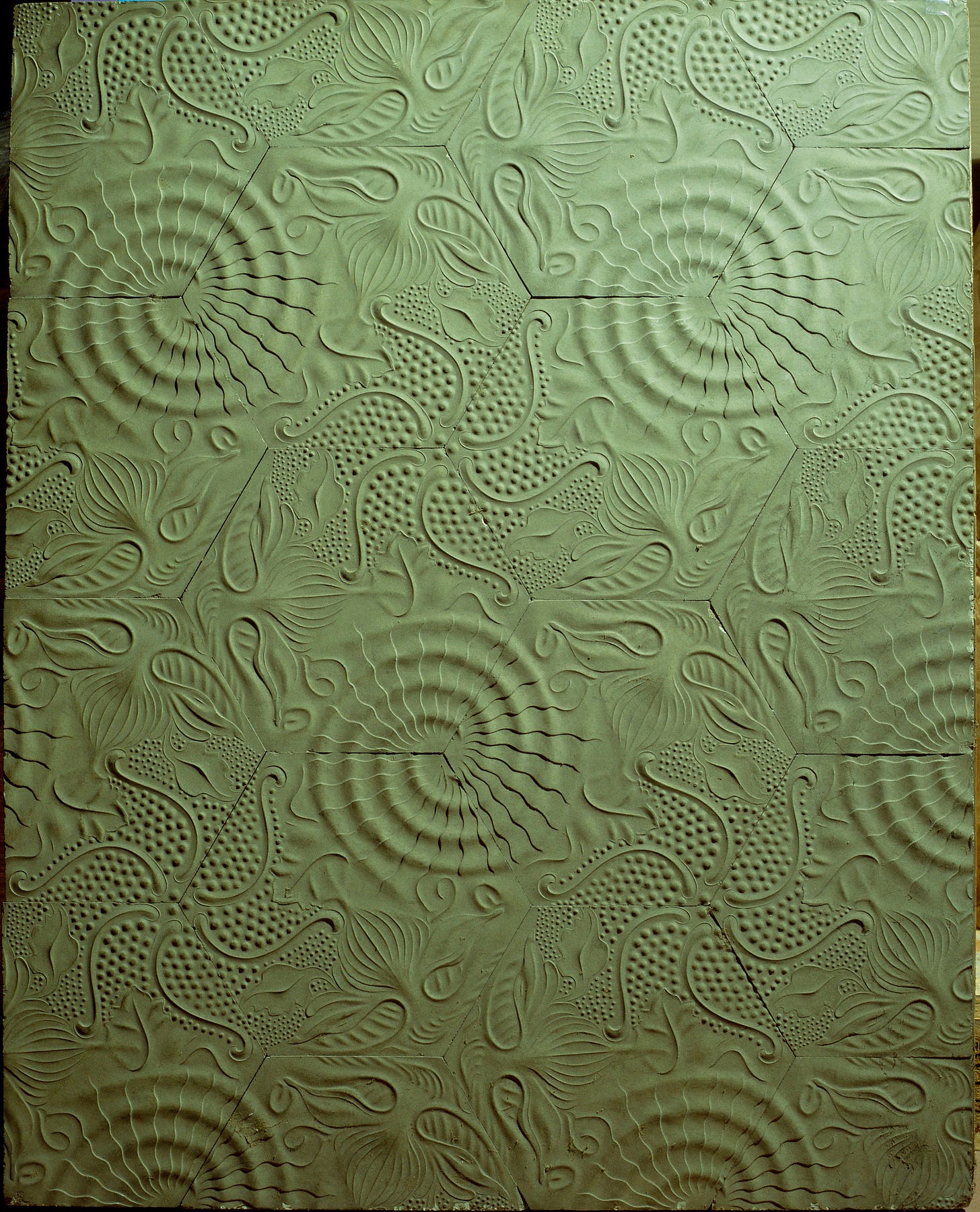#45. OCTOPUS / POP
Thenceforward, what I saw, was not for words to speak / D’allí endavant el veure fou més gran que el parlar
Thenceforward, what I saw,
Was not for words to speak, nor memory's self
To stand against such outrage on her skill.
As one, who from a dream awaken'd, straight,
All he hath seen forgets; yet still retains
Impression of the feeling in his dream;
E'en such am I: for all the vision dies,
As 't were, away; and yet the sense of sweet,
That sprang from it, still trickles in my heart.
Divine Comedy, Paradise’s Canto XXXIII, by Dante Alighieri
OCTOPUS
The octopus belongs to the sphere of the great ocean monsters, it is associated with the devouring aspect of the Great Mother and embodies the horror of the grotesque immenseness of natural forces. In this sense, it can be regarded as a symbol of hell and its terrifying appearance is manifested in mythical monsters such as the Hydra of seven heads or Medusa's tentacular hair. It appears as a decorative motif in ancient Minoan and Greek art. Octopuses are related to the moon and the astrological sign of Cancer. Western science has demonstrated the obvious intelligence and empathy of octopuses, few living things make it easier to understand that the time has come to blur the limits of anthropocentrism. Octopuses have a unique ability to change shape and color, camouflage to protect themselves and squeeze ink to run from danger. As a representation of the central core of transformation it has similarities with the symbolism of the spiral and the wheel. It can represent the activation of imagination: a new deep awareness emerges from the extraterrestrial intelligence of the octopus.
A cry went through late antiquity: "Great Pan is dead!" Plutarch reported it in his "On the failure of the Oracles". Yet the saying has itself become oracular, meaning many things to many people in many ages. […] Nature no longer spoke to us -or we could no longer hear-. The person of Pan the mediator, like an aether who invisibly enveloped all natural things with personal meaning, with brightness, had vanished.
Pan and the nightmare by James Hillman
D’allí endavant el veure fou més gran
que el parlar, que és poc per a tal visió,
i la memòria és poc per a tal excés.
Com el qui veu alguna cosa en somnis,
i que després li’n queda la impressió
però no té cap record de la resta,
així sóc jo, que està quasi extingida
ja la meua visió i dins del cor
goteja encara la dolçor que en naix.
Divina Comèdia, Cant XXXIII del Paradís, de Dante Alighieri
POP
El pop pertany a l'esfera dels grans monstres de les profunditats marines, s’associa a l’aspecte devoradora de la Gran Mare i encarna l’horror envers la immensitat grotesca de les forces de la naturalesa. En aquest sentit, se’l pot considerar com un símbol de l’infern i el seu aspecte terrorífic es manifesta en monstres mítics com la Hidra de set caps o els cabells tentaculars de Medusa. Apareix com a motiu decoratiu en l’antic art minoic i grec. El pop es relaciona amb la lluna i el signe astrològic de Càncer. La ciència occidental ha demostrat la indiscutible intel·ligència i empatia dels pops, pocs éssers vius permeten entendre millor que ha arribat el moment de difuminar els límits de l’antropocentrisme. Els pops tenen una capacitat única per canviar de forma i de color, es camuflen per protegir-se i escupen tinta per fugir dels perills. Com a representació del nucli central de transformació presenta similituds amb el simbolisme de l’espiral i la roda. Pot representar l'activació de la imaginació: una nova consciència profunda emergeix de la intel·ligència extraterrestre del pop.
Un grito recorrió la Antigüedad tardía: "¡El gran Pan ha muerto!". Lo recoge Plutarco en su tratado «Sobre la desaparición de los oráculos». Esta frase se ha vuelto oracular a su vez, significando muchas cosas para mucha gente en muchas épocas. […] La naturaleza ya no nos hablaba -o bien nosotros ya no podíamos oírla-. La persona de Pan el mediador, semejante a un éter que de modo invisible envolvía todas las cosas naturales con significado personal, con brillantez, había desaparecido.
Pan y la pesadilla de James Hillman








